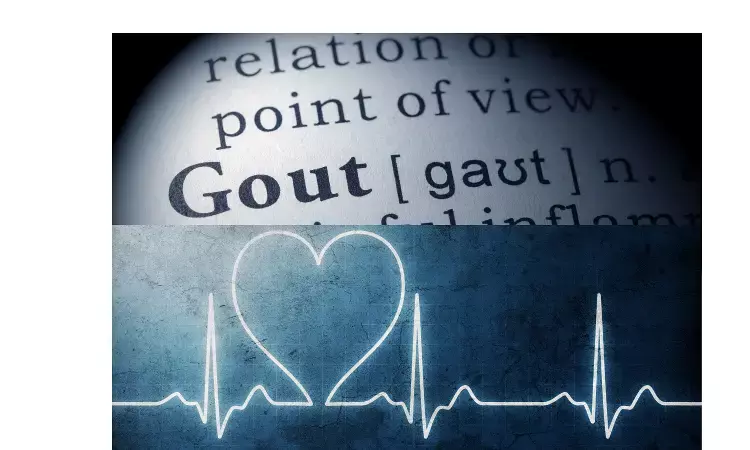- Home
- Medical news & Guidelines
- Anesthesiology
- Cardiology and CTVS
- Critical Care
- Dentistry
- Dermatology
- Diabetes and Endocrinology
- ENT
- Gastroenterology
- Medicine
- Nephrology
- Neurology
- Obstretics-Gynaecology
- Oncology
- Ophthalmology
- Orthopaedics
- Pediatrics-Neonatology
- Psychiatry
- Pulmonology
- Radiology
- Surgery
- Urology
- Laboratory Medicine
- Diet
- Nursing
- Paramedical
- Physiotherapy
- Health news
- Fact Check
- Bone Health Fact Check
- Brain Health Fact Check
- Cancer Related Fact Check
- Child Care Fact Check
- Dental and oral health fact check
- Diabetes and metabolic health fact check
- Diet and Nutrition Fact Check
- Eye and ENT Care Fact Check
- Fitness fact check
- Gut health fact check
- Heart health fact check
- Kidney health fact check
- Medical education fact check
- Men's health fact check
- Respiratory fact check
- Skin and hair care fact check
- Vaccine and Immunization fact check
- Women's health fact check
- AYUSH
- State News
- Andaman and Nicobar Islands
- Andhra Pradesh
- Arunachal Pradesh
- Assam
- Bihar
- Chandigarh
- Chattisgarh
- Dadra and Nagar Haveli
- Daman and Diu
- Delhi
- Goa
- Gujarat
- Haryana
- Himachal Pradesh
- Jammu & Kashmir
- Jharkhand
- Karnataka
- Kerala
- Ladakh
- Lakshadweep
- Madhya Pradesh
- Maharashtra
- Manipur
- Meghalaya
- Mizoram
- Nagaland
- Odisha
- Puducherry
- Punjab
- Rajasthan
- Sikkim
- Tamil Nadu
- Telangana
- Tripura
- Uttar Pradesh
- Uttrakhand
- West Bengal
- Medical Education
- Industry
Allopurinol may increase CV risk, mortality in gout compared to benzbromarone: Study

South Korea: Results from a large population-based cohort showed that allopurinol is related to an increased risk of all-cause mortality and composite cardiovascular (CV) events versus benzbromarone. Benzbromarone may reduce mortality and cardiovascular (CV) risk in gout patients. The study appears in the European Heart Journal.
Hyperuricemia and gout have been linked to an increased risk for cardiovascular (CV) disease, stroke, hypertension, heart failure, and chronic kidney disease, possibly through a pro-inflammatory milieu. Risks among men with gout are reported to be higher at 1.28% for total mortality and fatal cardiovascular events.
Eun Ha Kang, Seoul National University Bundang Hospital, Seongnam, South Korea, and colleagues aimed to compare CV risk among patients with gout who initiated allopurinol vs. benzbromarone treatment.
The study was a cohort study conducted in Korean National Health Insurance claims data (2002-17) of 124 434 gout patients who initiated either allopurinol (n = 103 695) or benzbromarone (n = 20 739), matched on propensity score at a 5:1 ratio. The primary outcome was a composite CV endpoint of myocardial infarction, stroke/transient ischaemic attack, or coronary revascularization.
To account for competing risk of death, a cause-specific hazard model was used to estimate hazard ratios (HRs) and 95% confidence intervals (CIs) for the outcomes comparing allopurinol initiators with benzbromarone.
The results of the study were:
• Over a mean follow-up of 1.16 years, 2258 patients developed a composite CV event.
• The incidence rate of the composite CV event was higher in allopurinol initiators (1.81 per 100 person-years) than benzbromarone (1.61 per 100 person-years) with an HR of 1.22.
• The HR for all-cause mortality was 1.66 among allopurinol initiators compared with benzbromarone.
Kang and the team concluded that "In this large population-based cohort of gout patients, allopurinol was associated with an increased risk of composite CV events and all-cause mortality compared to benzbromarone. Benzbromarone may reduce CV risk and mortality in patients with gout, although more studies are necessary to confirm our findings and to advance our understanding of the underlying mechanisms."
Reference:
Eun Ha Kang, Eun Hye Park, Anna Shin, Jung Soo Song, Seoyoung C Kim, Cardiovascular risk associated with allopurinol vs. benzbromarone in patients with gout, European Heart Journal, 2021;, ehab619, https://doi.org/10.1093/eurheartj/ehab619
Medical Dialogues consists of a team of passionate medical/scientific writers, led by doctors and healthcare researchers. Our team efforts to bring you updated and timely news about the important happenings of the medical and healthcare sector. Our editorial team can be reached at editorial@medicaldialogues.in.
Dr Kamal Kant Kohli-MBBS, DTCD- a chest specialist with more than 30 years of practice and a flair for writing clinical articles, Dr Kamal Kant Kohli joined Medical Dialogues as a Chief Editor of Medical News. Besides writing articles, as an editor, he proofreads and verifies all the medical content published on Medical Dialogues including those coming from journals, studies,medical conferences,guidelines etc. Email: drkohli@medicaldialogues.in. Contact no. 011-43720751


